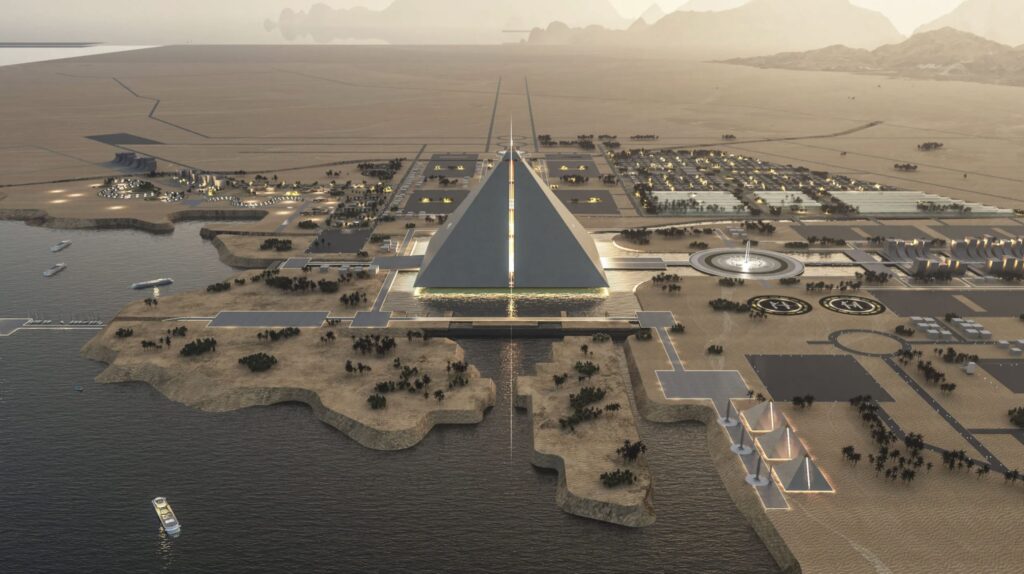- Meta (Facebook) has introduced content creators in Lagos to the various technologies paving the way to the Metaverse
- In South Africa, at least 16% of its total adult population has participated in VR applications, according to SA Social Media.
- Egypt is one of the few countries globally that launched its first virtual City within the Metaverse.
The Metaverse is a new technology that has swept Africa’s digital economy off its feet. Despite its relatively new nature, several countries in Africa and throughout the globe have embraced its numerous capabilities in the education, medical and economic industries.
The Metaverse has been significant in growing Africa’s web3 community. As a result, blockchain developers and digital innovators have created their Metaverse to provide a platform where NFTs and digital currencies can thrive without hindrance. The cumbersome nature of third-party systems and organizations has no general rule over them. Currently, three vital African countries are taking advantage brought by the various applications of VR: Nigeria, South Africa and Egypt.
Digital innovations in Africa have sparked a technological revolution within the country. In addition, the Metaverse has offered numerous applications. Here is a look at how these key states are utilizing this new technology
African Countries Thriving in The Metaverse
Africa has virtually missed out on all the previous Industrial Revolutions of the past millennium. Fortunately, this fact has propelled most of Africa to dominate the 4th Industrial revolution more through blockchain technology and AI. As such most African countries are strategically hanging onto every advantage they can to stay ahead of the game. Currently, five countries struggle for Africa’s tech hub; Kenya, South Africa, Egypt, Nigeria and Seychelles.
Also, Read Metaverse in Healthcare: Redefining Africa’s medical sector.
As a result, these countries have taken it upon themselves to dive into the present emergent technologies. We will only focus on those who have significantly taken in the various applications of VR to improve their digital innovations. These African countries utilize the Metaverse to improve their digital and social economy.
Nigeria
Nigeria is known as the most likely country that will lead Africa’s web3 community to gory. It is currently ranked among the top 15 countries withi the globe with the highest trading volumes in cryptocurrency. It is no surprise that it appears among the top African countries in the Metaverse. However, many might be surprised that Nigeria relies on the various applications of VR to boost its current NFT artists.
Aside from crypto, Nigeria has had its fair share of wins regarding the NFT marketplaces. Nigeria hosts some of the well-known NFT artists, such as;
- Prince Jacon Osinachi Igwe, the pioneer of NFT in Nigeria
- Antony Azekwoh
- Odion Tobi
- Oyingamola Oyekami Oyewumi
- Niyi Okeowo
As a result, these five individuals have inspired rapid growth in NFT artists within the country. Soon after this constant rise of talent needed a haven to grow and prosper, many turned to the Metaverse.

Meta’s Director of Public Policy, Kojo Bokaye, stated that Meta recognizes Nigeria as a central African country in the Metaverse. He said Nigerian creators are trailblazers who express themselves, inspire others and build communities and livelihoods from the Metaverse. In 2022 Nigeria stood at the top, accounting for over 600 million of venture capital in Africa’s digital economy.
In addition, they also account for a majority of artists in digital innovations such as the Africarare Metaverse. Nigeria’s determination to dominate Africa’s Web3 community has led to Meta recognizing its efforts. Meta, formerly known as Facebook, exposes some of its new technology to Nigerian NFT artists. The Metaverse showcased some of its Avatars, SparkAR and NFTS, in Lagos.
Also, Read Cryptocurrency trading: Top African countries dominating crypto space.
Meta hosted this event to demonstrate the various applications of VR and how Nigerian Artists can utilize them to further increase Africa’s digital economy. Unfortunately, its government has not made official contributions to the Metaverse since it is still establishing fundamental rules for cryptocurrency and regulating eNaira.
South Africa
South Africa is by far the most immersed African country in the Metaverse. It has taken an avid stance and support of this technology. It even launched its VR world, Africarare. In South Africa, at least 16% of its total adult population has participated in VR applications, according to SA Social Media.

South Africa has expressed interest in going further into its business sector. Africarare already ushered in this concept after it commercialized its 3D VR experience set in Ubuntuland. South Africa also saw a boost in its metaverse adoption strategies after Africarare received significant partnerships from organizations such as MTN and M&C Saatchi Abel. Meta predicts that Africa’s digital economy will go up simply due to the mass metaverse adoption rate within Africa.
In addition, the digital innovators in Africa have turned to capitalize on the Mvile Industry.
Also, Read The seven most essential technologies driving the metaverse.
According to the CEO of Orino, Oresti Patricios, Africa’s web3 community and the mobile industry will propel the African countries in the Metaverse. Unfortunately, it will be a slow evolution as digital innovators find a way to integrate the Metaverse into the mobile industry. Fortunately, South Africa is practically ready to hop into the Metaverse wagon.
Egypt
Egypt has had a somewhat mixed take on Africa’s Web3 community. As an African country in the Metaverse, it still is sceptical about the other forms of Web3, such as cryptocurrency. Unfortunately, it banned its financial institutions from dealing with cryptocurrency.
Fortunately, when it comes to the Metaverse, Egypt has a different take on it. In 2022, Egypt had $4.9 billion in revenue within Africa’s digital economy. As such, when the notion of a VR application crossed its borders, its citizens and government recognized its vast potential.

CEO of Tutera, Ashraf Abdel Mohsen state that the Metaverse is a vast world of possibilities. The digital innovator would be accessible to all their ideas and build more than just NFTs.
The virtual city Metatut is to create a simulation of ancient Egypt, specifically during King Tutankhamun. Essentially the idea is tailored to allow the African web3 community a sense of freedom in designing, implementing and creating within the Metaverse.
In addition, Egypt has embraced the use of the Metaverse as an educational tool. The Ministry of Local Development stated its plans to increase its capabilities through an education system.
As a result, this department ended up listing at least 155 courses and workshops within the Metaverse. Now users will have the ability to learn and gain experience through various applications of VR.
After the initial training, the Ministry accounted for a 27% productivity increase among its employees. Now Egypt intends to move directly to implementing Metaverse application courses, AI and Virtual world courses.
Also, Read Egypt issues a heavy fine and imprisonment warnings to cryptocurrency investors.
In addition, its government has offered to provide the necessary facilities for the new learning regimes.
Conclusion
These are some of the few African countries in the Metaverse through their sheer numbers or governmental support. The Metaverse alone has the potential to drive Africa’s digital economy only if it gains adequate digital innovators who have the zeal to learn and implement. There are numerous applications of VR, but positive feedback is often a consistent factor in each one. Will these countries be able to inspire other countries o take in the technology? It is still too soon to get an answer, but in hindsight, Africa’s web3 community is steadily increasing.
